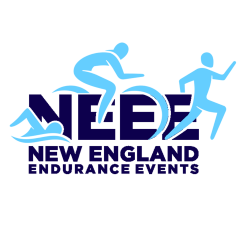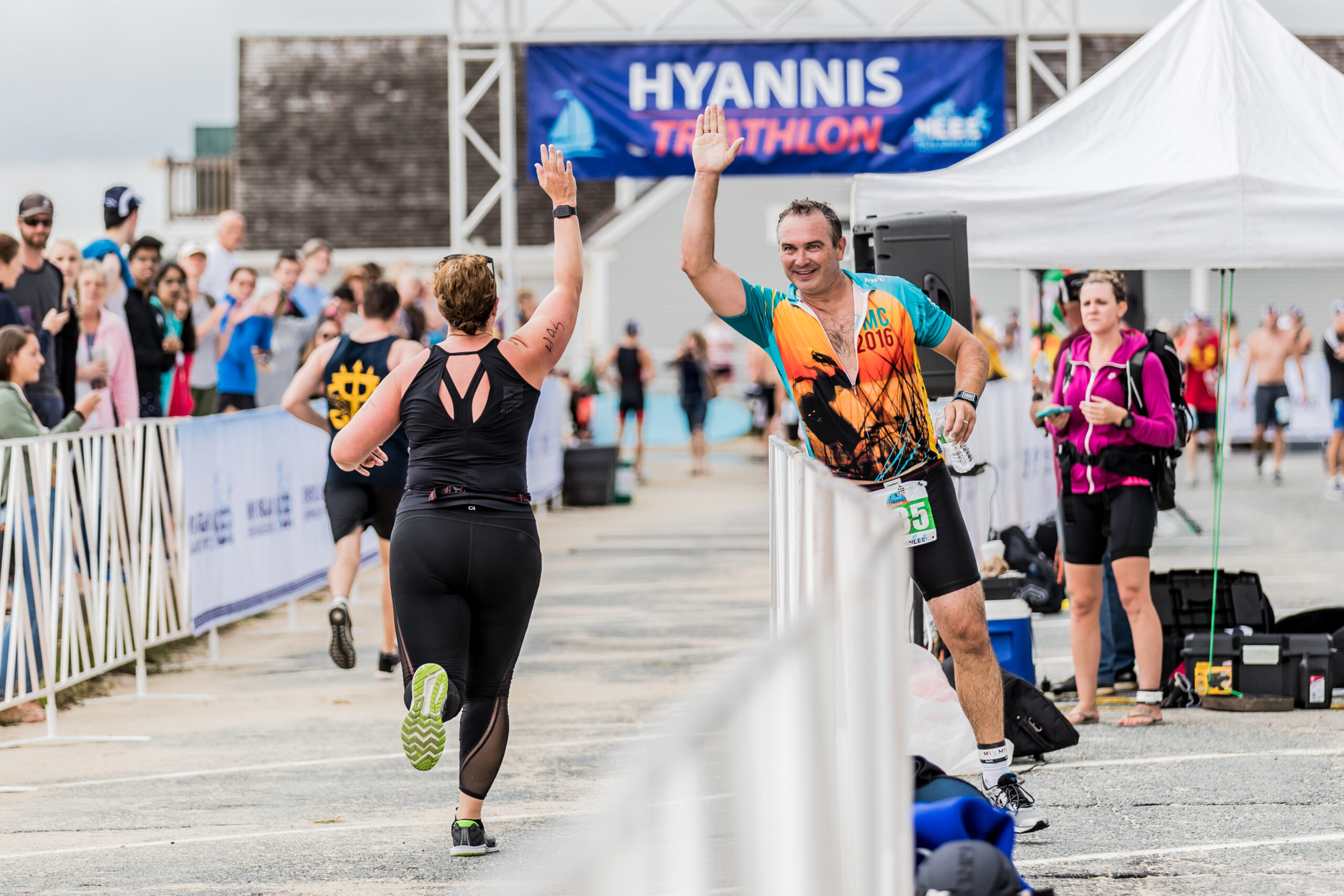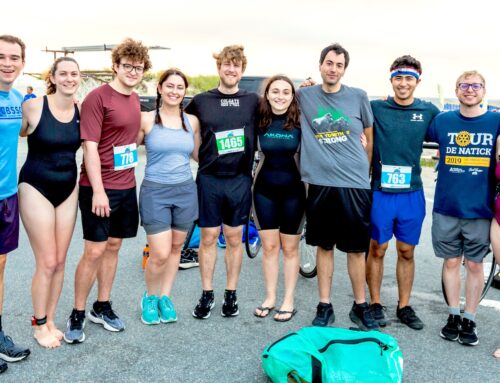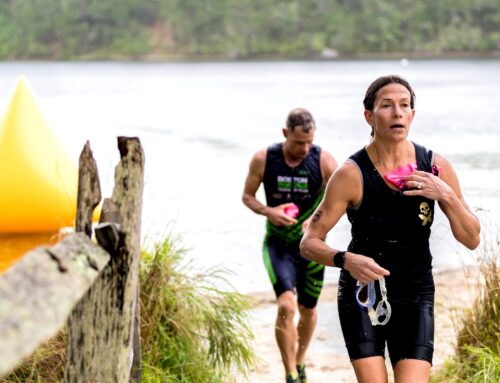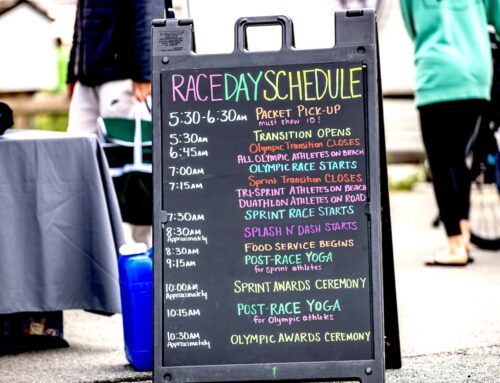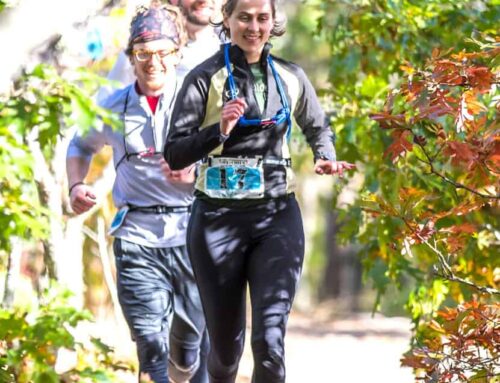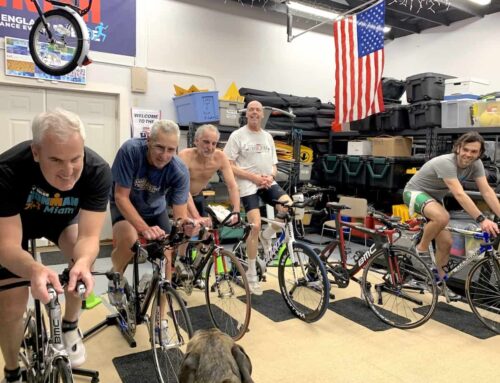It’s a given that physical practice is required when training for a triathlon. You’ll need to work on each aspect of the race, build up your endurance, train your core, and more. However, another aspect of getting ready for a triathlon that is often overlooked is the process of research and learning. That’s right: You need to put your brain to work in order to improve your physical performance and make sure you get the best out of your triathlon.
How do you do that, you ask? Well, everyone has a different process. But here are some steps that helped me.
Research Workouts
You need to make sure not only that your body is in the best shape it can be in, but that you can handle transitioning between the three disciplines. In my personal experience, the switch from biking to running is particularly grueling. My legs are already jelly, so my first stretch on foot is basically about trying to get into a proper running form. If I hadn’t learned that this was going to happen, I would’ve been terrified, and there’s a good chance I would’ve ended up running with poor form for the whole on-foot portion. Luckily, I did my research on what goes into a triathlon and I was prepared for this to happen.
Of course, knowing was half the battle; the other half was incorporating the information into my daily workout routine and training my legs (and knees!) for the abrupt switch from biking to the harsh impact of running on concrete.
Study Sports Data Analytics
Well, we are continually told we live in an age of data, right? I decided to look into whether or not this might help me in my triathlon training, and it turned out to have been a good thing to consider.
A way that I learned about sports data analytics is through a sports business management course or program –– which is not designed to benefit athletes directly but can include a concentration on data. Through this type of education, I explored a sports data analytics concentration that helped me learn how to gather and interpret information related to my training. I was able to record my information (using wearables), recognize progress, and break down my training process to see what’s most effective for me. It’s not the end-all solution to training, but every little bit helps, right? Speaking of data… there are a few online tools that can help you keep track of your training; TrainingPeaks and MapMyRide.
Pick & Study a Specific Race
If you know which triathlon you want to participate in, it’s also wise to take the time to check out the course maps. This will help you in a few ways. First, you’ll probably get the chance to practice on the course itself (depending on the hosts or host area, of course). Take your bike out and traverse the bike course to understand where the curves and hills are, as well as if there are any bumpy or otherwise rough areas. Swimming in the same body of water as the swim course and training on the run course are also helpful.
Read & Listen to Other Triathletes for Tips
I’ve read quite a few books on the topic of triathlons, and some of the podcasts are worth trying while you’re in the middle of things like walking the dog or doing the laundry. At the same time though, none of these things have stood out to me personally. It was demotivating in the beginning: I was listening to people who had been training nearly their whole lives talk about how easy it was, and the lingo threw me off as well. I was an inexperienced 20-something with asthma; clearly, these athletes were leagues ahead of me. So don’t feel bad if you engage with material like this only to have trouble relating. Here’s a great resource for new triathletes from USA Triathlon.
However, one book struck a chord with me: “You Are an Ironman” by Jacque Steinberg. It follows the journeys of six totally normal people who were just like me, and how they managed to follow their dreams of participating in a triathlon. And without a doubt there are other valuable books on the subject as well, so if you’re looking for any possible way to get a leg up, get reading!
I hope these tips have inspired you to do some research of your own. Don’t forget to apply what you’ve learned in your research and switch up your daily workout and training as needed!
Prepared by guest blogger: Alicia Russell
Alicia Russell is a freelance writer and triathlete. Her first triathlon was the Rother Valley Triathlon. Although she didn’t place high, it ignited in her a passion for the sport. Today she is a mother of two young kids, and while her competing has stopped for the moment, her passion to write about triathlons continues. When she isn’t writing, she loves to stay fit by taking long walks with her dog.
Content intended only for the use of neeevents.com
